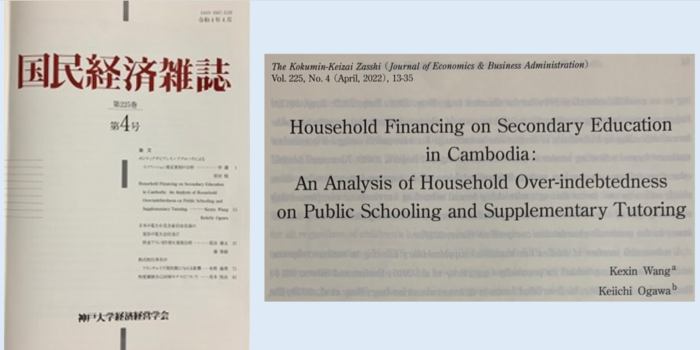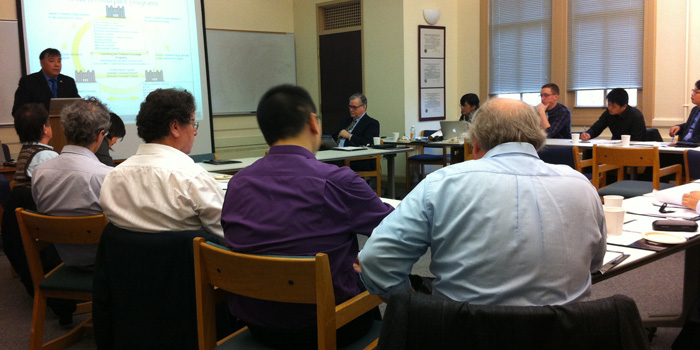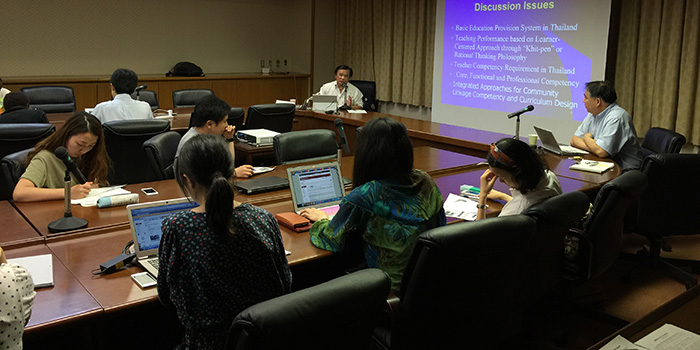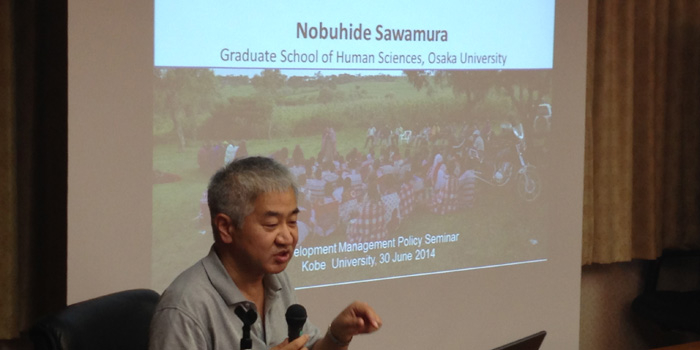
Professor Ogawa and Dr. Wang, an Ogawa seminar alumna, published a joint paper in the Journal of Economics and Business Administration, Vol 225, No. 4. The paper’s title is “Household Financing on Secondary Education in Cambodia: An Analysis of Household Over-indebtedness on Public Schooling and Supplementary Tutoring”
While the microfinance market has expanded rapidly in Cambodia, the over-indebtedness is one of the social issues to be addressed. Since household over- indebtedness seriously affects educational access, this subject can be considered as education problem.
In Cambodia, the government introduces the public-private hybrid secondary education system in which students are required to take both public schooling and supplementary tutoring for completing the national curriculum. The supplementary tutoring has been provided by non-public institutions in exchange for tuition fees from individuals and caused an increase in the financial burden on households for private tutoring. This study aims to investigate the association between the household over-indebtedness statusand the access to public schooling and supplementary tutoring among official secondary school-age children.
In this study, the authors applied a quantitative approach to analyze the association by using the national-sampled Cambodia Socio-Economic Survey (CSES) dataset, which was collected by the National Institute of Statistics (NIS) in 2014. The finding shows that household over-indebtedness is negatively associated with public-school enrollment and supplementary tutoring participation from middle and upper household socioeconomic status. However, on the other hand, the result indicates a positive relationship in the case of low household socioeconomic status.
The findings of the study suggest the necessity to improve equitable access to quality education considering the effect of household over-indebtedness status in Cambodia. Dr.Kexin Wang works as a consultant at the World Bank after she obtained a doctoral degree at Kobe University under the supervision of Professor Ogawa.
Authored by Rika Sugiura (Master’s Student)
Related
Related Articles
Professor Keiichi Ogawa was invited by Professor Louis Comfort, Director of Center for Disaster Management at the University of Pittsburgh to participate in an international workshop on “Building Community Resilience...
Professor Anurak Panyanuwat, from Chiang Mai University in Thailand delivered a presentation entitled, “Basic Education's Local Curriculum and Teaching Performance based on Learner-Centered Approach in Thailand”. The presentation was held...
On Monday, June 30th, 2014, a Development Management Policy Seminar on “International Education Cooperation in the Post-2015: From Perspectives of Academia based on Field Research" was conducted in the main...






